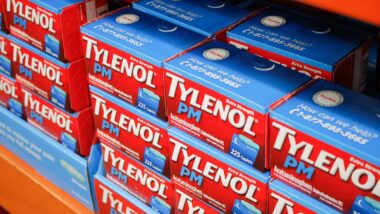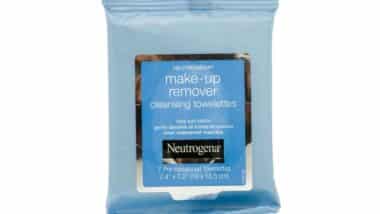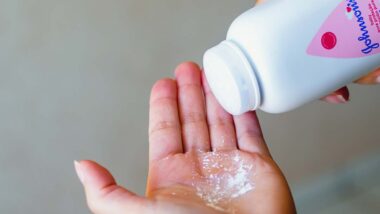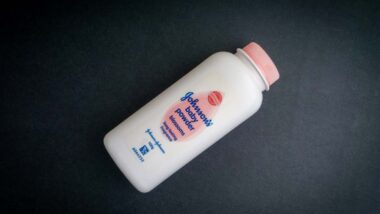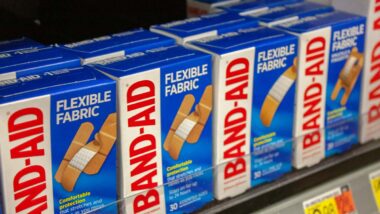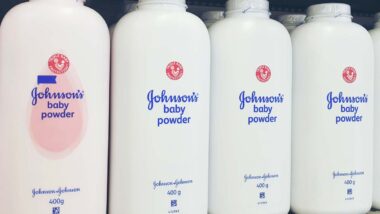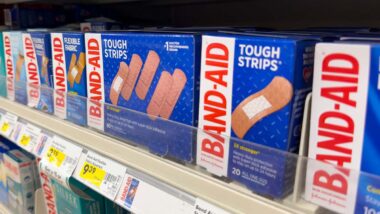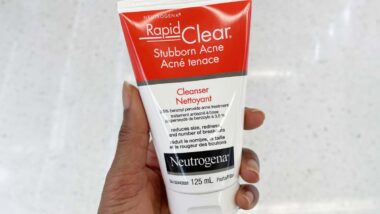 Johnson & Johnson and subsidiary Janssen Pharmaceuticals are facing a growing multidistrict litigation from numerous patients alleging ketoacidosis from Invokana.
Johnson & Johnson and subsidiary Janssen Pharmaceuticals are facing a growing multidistrict litigation from numerous patients alleging ketoacidosis from Invokana.
One of the most recent Invokana lawsuits comes from a North Carolina woman, who alleges she developed ketoacidosis from Invokana and that the company failed to warn her against potential drug complications.
Plaintiff Tammy B. filed this Invokana lawsuit, alleging she developed ketoacidosis from Invokana. She was prescribed the medication to treat her type-2 diabetes by helping her manage her blood sugar levels.
With diet and exercise, Invokana was supposed to help Tammy live a normal life that was minimally affected by type-2 diabetes. Tammy says she had been prescribed Invokana in July 2014, and had only used the medication according to physician instructions and did not deviate from its intended use.
Tammy had stayed on the medication until January 2015, which was around the same time she was diagnosed with ketoacidosis. Tammy alleges her condition was directly caused by the type-2 diabetes medication, and that Johnson & Johnson either knew or should have known about the potential complication.
Tammy filed legal action soon after her diagnosis, after discovering other patients may have also developed ketoacidosis from Invokana.
Overview of Invokana Ketoacidosis Correlation
Invokana was approved by the FDA in March 2013 for use as a type-2 diabetes treatment drug. This medication is a part of the sodium-glucose contransporter 2 (SGLT2) inhibitor drug family, which work by preventing the body’s blood sugar levels from getting too high. SGLT2 inhibitors work by preventing the body from reabsorbing glucose, and expelling excess sugar through urination.
The drugs do this by signaling the kidneys, which has reportedly worked well for many patients. However, this treatment mechanism has been allegedly causing serious complications in patients, including ketoacidosis from Invokana. The FDA had issued a public warning on May 15, 2015, warning patients that these medications could potentially induce ketoacidosis.
This warning came after the FDA’s Adverse Event Reporting System (FAERS) had received 20 cases of diabetic ketoacidosis, ketoacidosis, or ketosis injury reports from patients who were prescribed SGLT2 inhibitors between March 2013 and June 6, 2014. Each of these patients required hospitalization or emergency room visits to treat their conditions, with the FDA continuing to receive injury reports regarding potential ketoacidosis from Invokana.
Ketoacidosis occurs when the body is forced to metabolize fat instead of sugar. Metabolizing fat produces substances called ketones, which build up in the blood and may increase blood acidity to a dangerous level.
Even though this complication is potentially deadly, plaintiffs claim, Johnson & Johnson allegedly failed to disclose this information.
Tammy says she agreed to use Invokana after discussing the option with her physician and reviewing the company’s marketing materials. She states she never would have used the medication if she had known about potential ketoacidosis from Invokana risks.
Tammy is filing this Invokana lawsuit in MDL No. 2750, where it will stand alongside other claims alleging similar injuries. By joining an MDL, Tammy’s claim will be streamlined through the litigation process and will avoid issues like conflicting rulings from different judges.
This Invokana Lawsuit is Case No. 3:17-cv-07293-BRM-LHG, in the U.S. District Court for the District of New Jersey.
In general, diabetes drug lawsuits are filed individually by each plaintiff and are not class actions.
Do YOU have a legal claim? Fill out the form on this page now for a free, immediate, and confidential case evaluation. The attorneys who work with Top Class Actions will contact you if you qualify to let you know if an individual lawsuit or class action lawsuit is best for you. Hurry — statutes of limitations may apply.
ATTORNEY ADVERTISING
Top Class Actions is a Proud Member of the American Bar Association
LEGAL INFORMATION IS NOT LEGAL ADVICE
Top Class Actions Legal Statement
©2008 – 2025 Top Class Actions® LLC
Various Trademarks held by their respective owners
This website is not intended for viewing or usage by European Union citizens.
Get Help – It’s Free
Join a Free Diabetes Drug Class Action Lawsuit Investigation
If you or a loved one suffered ketoacidosis or kidney failure after taking Invokana, Invokamet, Jardiance, Xigduo XR, Farxiga, or Glyxambi, you may have a legal claim. See if you qualify to pursue compensation and join a free diabetes medication class action lawsuit investigation by submitting your information for a free case evaluation.
An attorney will contact you if you qualify to discuss the details of your potential case.
Please Note: If you want to participate in this investigation, it is imperative that you reply to the law firm if they call or email you. Failing to do so may result in you not getting signed up as a client, if you qualify, or getting you dropped as a client.
Oops! We could not locate your form.


